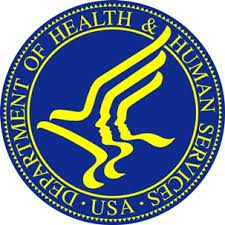Nearly 15% of Medicare Part B enrollees pay the full 20% coinsurance for their reference biologic, while others have supplemental insurance that only covers a portion of the 20%.
- Bone Health
- Immunology
- Hematology
- Respiratory
- Dermatology
- Diabetes
- Gastroenterology
- Neurology
- Oncology
- Ophthalmology
- Rare Disease
- Rheumatology
Advocacy Groups Call for Zero Co-pay Policy on Biosimilars
A group of 16 advocacy groups are urging HHS to make zero co-pays for biologics a part of its prescription drug price reform program.
As the deadline approaches for HHS to divulge its game plan for controlling prescription drug costs and “price gouging,” levels of concern are rising among providers and manufacturers.
A group of 16 patient advocacy organizations has asked CMS and HHS to consider establishing a zero co-pay policy for Medicare Part B patients, a move the groups said would improve access to biosimilars and save seniors in Medicare as much as $3 billion in out-of-pocket costs.
“Alignment of incentives across Medicare programs that encourage the use of biosimilars are integral to the development of the US market, leading to increased biosimilar usage and unlocking immense savings in the US health care system,” the group said in an open letter to HHS and CMS officials.
The letter was signed by the Allergy & Asthma Network, CancerCare, Consumer Action, Crohn’s & Colitis Foundation, Endocrine Society, Healthy Women,, International Myeloma Foundation, Lupus Foundation of America, and others.
President Biden has directed HHS to produce a policy for combating high prescription drug prices as soon as Monday, August 23.
The advocacy groups, in their letter, acknowledge the high cost of biologics, which are made from living organisms and require extensive, carefully controlled processes to develop and manufacture.
Biosimilars are lower-cost alternatives to originator biologics and have no clinically meaningful differences when it comes to safety or efficacy, according to the FDA. “These therapies represent an opportunity to improve the health and well-being of millions of Americans and, at the same time, save US taxpayers billions in health care costs," the advocacy groups said.
US patients have had access to biosimilars for 6 years; 30 of them are now approved and 21 are on the market. Medicare “enrollees can face thousands of dollars in annual out-of-pocket costs for biologics, creating affordability and access barriers for patients in Part B. Nearly 15% of Medicare Part B enrollees pay the full 20% coinsurance for their reference biologic, while others have supplemental insurance that only covers a portion of the 20%,” the letter states.
The group estimates that a zero co-pay policy would save taxpayers $5 billion over 10 years.
Other signatories to the letter included Beyond Type 1, DiabetesSisters, National Consumers League, Patients Rising Now, Rheumatology Nurses Society, Sjögren’s Foundation, and ZERO - The End of Prostate Cancer.
Newsletter
Where clinical, regulatory, and economic perspectives converge—sign up for Center for Biosimilars® emails to get expert insights on emerging treatment paradigms, biosimilar policy, and real-world outcomes that shape patient care.

